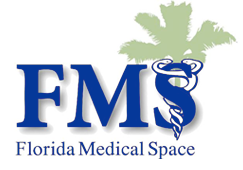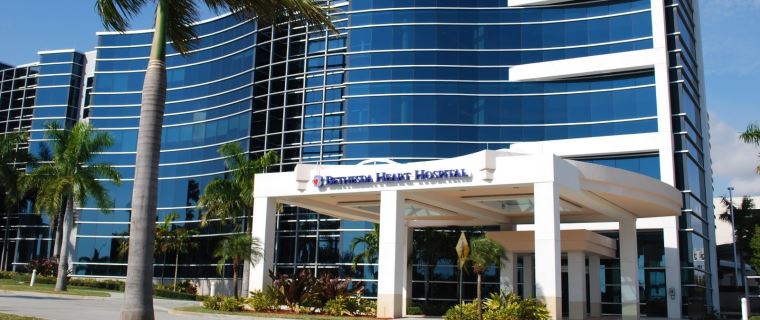Bethesda Heart Hospital’s new advanced hybrid endovascular suite features state-of-the-art technology that will benefit patients with speedier, more precise care when facing complex cardiac and vascular conditions.
Bethesda Heart Hospital, located on the campus of Bethesda Hospital East, a part of Baptist Health South Florida, is now the first in Palm Beach County — and one of few in the nation — to feature the highly sophisticated Azurion with FlexArm imaging system by Philips. The suite also includes the first commercial release of Philips Xper3 information management system for physio-monitoring, reporting, inventory and data management.
“Delivering truly outstanding care requires our clinical teams to be at the forefront of the latest developments in medicine,” says Nelson Lazo, CEO of Bethesda Hospital East and Bethesda Hospital West. “Access to quality imaging solutions is key to getting faster diagnosis and treatment, which will enable us to enhance care.”
Azurion with FlexArm represents a significant advancement because it allows unprecedented image quality from a wide variety of angles, using a pivoting C-arm and gantry suspended from the ceiling. The FlexArm rotates on no less than eight axes to create virtually unlimited imaging options from head to toe for both two- and three-dimensional visualizations. That flexibility frees up medical teams to choose the best working position without the need to reposition the patient or adjust the operating table, important safety and time considerations.
The system was designed following three years of research at Baptist Health’s Miami Cardiac & Vascular Institute.
“With FlexArm, Philips’ engineers have overcome near-impossible geometric and mechanical barriers,” said Barry T. Katzen, M.D., founder and chief medical executive of the Institute, where the first FlexArm in North America was installed. “We can get the optimal view of what’s going on inside the patient without encumbering all of the clinicians that are working around the table.”
Image-guided therapy, in which treatment is performed through a small incision and guided by imaging technology, is increasingly replacing open surgery for the treatment of many diseases. Patients experience less trauma and, as a result, their hospital stay can be dramatically reduced. They often return home after one night in the hospital, and may even leave the hospital on the same day.
Correspondingly, the procedures are also becoming more complex, requiring more physicians from different disciplines to be at the patient’s tableside, working together in a highly coordinated way. Clinicians need to be able to quickly and easily visualize critical anatomy and identify changes to the patient during procedures.
The new suite can seamlessly accommodate both minimally invasive procedures and traditional open surgery, allowing clinicians to pivot in their surgical planning when necessary.
The new advanced endovascular suite will be used for more complex procedures such as transcatheter aortic valve replacements (TAVR), mitral valve clip repairs, left atrial appendage occlusion surgeries and thoracic aneurysm repairs. “We have a great staff of medical experts including Dr. George Daniel, interventional cardiologist, and Dr. Geoffrey Lynn, cardiothoracic surgeon, who are very eager to care for patients using this latest technology,” said Jane Kiah, assistant vice president, Bethesda Hospital East. “Our goal is always to provide the highest quality care and have the most successful outcomes possible.”
“It’s a major addition that expands our capacity to serve the needs of this community,” added George Daniel, M.D. “This new room is built to carry us into the future. It is designed with the flexibility to accommodate new equipment and technology as new procedures are developed.”
The new suite was made possible through philanthropic support from the Bethesda Hospital Foundation, which embraced the vision for new technology.
“Our Foundation worked very hard for several years to secure support for this suite, and the community is very excited to see it come to fruition,” added Barbara James, executive director of Bethesda Hospital Foundation.
Source: South Florida Hospital News

